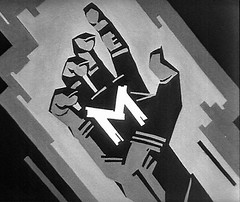Today i went to see Dick Powell speak during the opening conference of Filter Design Competition, the great design event organized by Oricum. Even though he didn't really say anything completely new to me, his discourse was very inspirational, because it revealed interest and common sense, two of the most important ingredients that help create brilliant work. And the fact that he also showed a great deal of examples, together with their results on the market only adds up to this observation. Here are some random notes i took:
- ideas need to be pushed and pulled, that's what makes them eventually work
- companies are like jelly: they like the concept of "innovation", because it's a buzz word, they spend endless hours in meeting and workshops discussing how to innovate, and yet, they sometimes completely fail to change, because they prove so reluctant to change after all (this sounded awfully familiar)
- innovation is rarely about a "big idea", but about a series of small ideas brought together in a new and original way
- crucible event (that's why observing people in their homes makes a lot of sense - design is about making things better, and most times those things it needs to fix or take into consideration are purely intuitive, therefore people will not be able to rationalize them within focus groups) -> knowledge (if we ask a 5 year old to design us the car of the future, his imagination has no limits, and he's very likely to come up with something with lots of wheels and engines and stuff, because he doesn't have the knowledge to know it won't work) -> idea -> belief -> embodiment
- a brief is a collection of client prejudices
- design is about making things better in a relevant and functional way, which is why designers are interested in everything, and scoping society, science and economy is vital to gain little insights, as well as big pictures
- look rather than see
- anthropology comes before technology, because people and more important than things
- the product is where the brand keeps its promises (a brand manifests itself through much more than just communication and packaging)
- it's essential to learn how to deal with how others manipulate your brand (coke versus mentos example, dove camapign for real beauty example)
- if we solve all these small problems we've identified, we're gonna have a very successful product, even though it means harder work
- "problems cannot be solved by thinking within the framework in which the problems were created" (einstein)
- you see things and you ask "why?"; but a designer dreams of things that never were and asks "why not?"


No comments:
Post a Comment